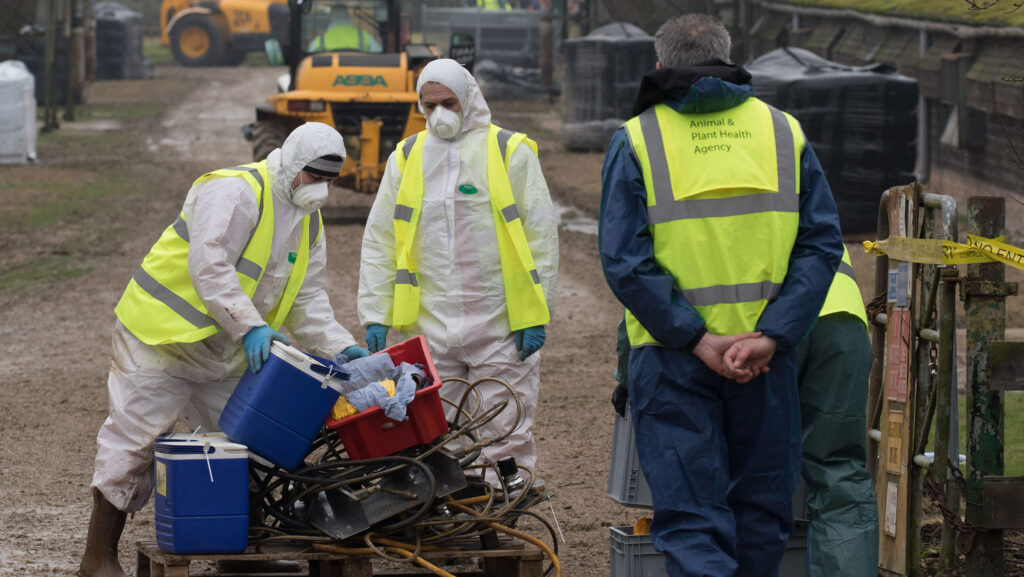Prepare now for ‘most dangerous bird flu strain ever’
 © Tim Scrivener
© Tim Scrivener Poultry producers are being warned to prepare for one of the worst avian influenza seasons on record, with eight more cases confirmed in England, Wales and Northern Ireland in the first three days of November.
Addressing the Egg and Poultry Industry Conference in Newport, Gwent, on Monday (3 November), avian virology expert Prof Ian Brown from the Pirbright Institute described the current strain of H5N1 as “punching well above its weight”.
See also: Bird flu housing order to take effect in various regions
“It is the most dangerous highly pathogenic virus we’ve ever encountered,” he said.
Just one teaspoon of infected poultry faeces would be enough to kill one million turkeys.
“We have had wild bird cases at a consistent level all the way through the year, which is only the second time that has really happened at that level,” Prof Brown told the audience.
The 20 cases in the UK since the start of October were already on a par with the whole of 2020-21, and the UK was on track to at least match the “sky scraper” years of 2021-22 and 2022-23.
There was also an ongoing spike in cases in Continental Europe – especially in the Baltic Sea region and Germany.
Maintaining maximum biosecurity was an absolute priority, said Prof Brown, though there was a danger that, with all the pressure producers were under, some degree of “biosecurity fatigue” might be setting in.
Vaccination
Vaccination was becoming a more realistic proposition, Prof Brown explained.
There were already effective vaccines available, which had been used quite successfully in French duck flocks since 2023 to reduce the number of avian influenza outbreaks.
But questions about the impact on export sales should vaccination be widely used in the UK remained, and the potential cost to the industry was high.
In particular, current EU protocols would require ongoing monitoring of live vaccinated birds every 30 days, and this surveillance would account for 44% of the estimated £345m total cost of rolling out vaccination in the UK, according to the joint industry/government avian influenza task force.
Despite these obstacles, Prof Brown suggested there was growing international enthusiasm for vaccination – including support from the World Organisation for Animal Health.
But, even if surveillance protocols could be improved, vaccination would be not be a “simple fix” and there was no substitute for biosecurity.
Airborne transmission
Prof Brown also played down suggestions regarding the airborne spread of avian influenza which has been gaining traction in recent times.
Previous studies by the Animal and Plant Health Agency around infected premises had failed to find airborne infection beyond 12m from the barns.
“I’m not saying it can’t happen, but it is not the first port of call,” said Prof Brown.
However, he did concede that lower stocking rates or using more resilient breeds might improve resistance to avian influenza.
“If we can improve other facets of our production so that we have got really healthy birds, that vigour will contribute to the increase in resistance to infection, including to the virus, he said.
“Adding vaccination on top of those improvements is definitely going to be beneficial.”
